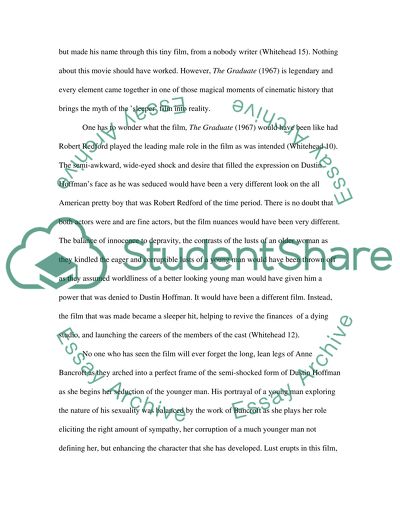Cite this document
(“The Graduate: A Glance at Lust, Love, and Plastics Essay”, n.d.)
Retrieved from https://studentshare.org/environmental-studies/1420331-the-graduate-a-glance-at-lust-love-and-plastics
Retrieved from https://studentshare.org/environmental-studies/1420331-the-graduate-a-glance-at-lust-love-and-plastics
(The Graduate: A Glance at Lust, Love, and Plastics Essay)
https://studentshare.org/environmental-studies/1420331-the-graduate-a-glance-at-lust-love-and-plastics.
https://studentshare.org/environmental-studies/1420331-the-graduate-a-glance-at-lust-love-and-plastics.
“The Graduate: A Glance at Lust, Love, and Plastics Essay”, n.d. https://studentshare.org/environmental-studies/1420331-the-graduate-a-glance-at-lust-love-and-plastics.


